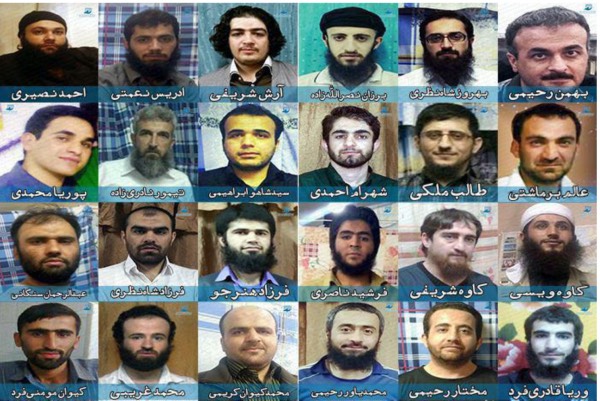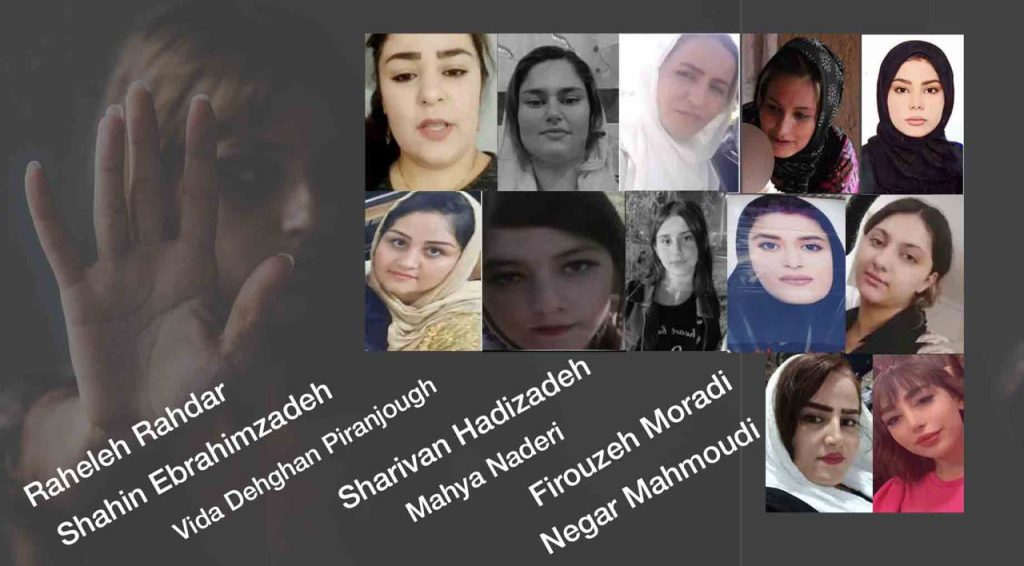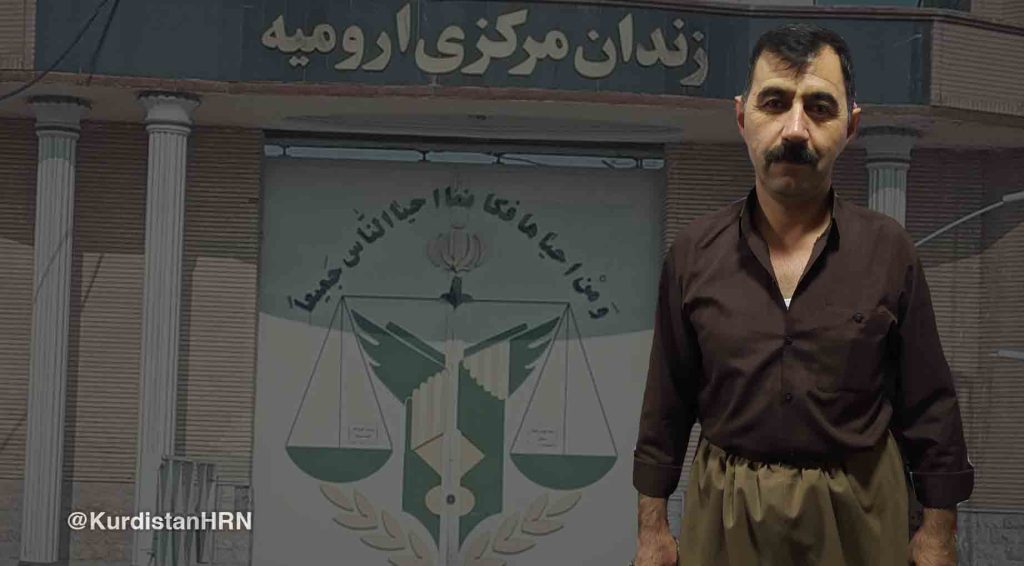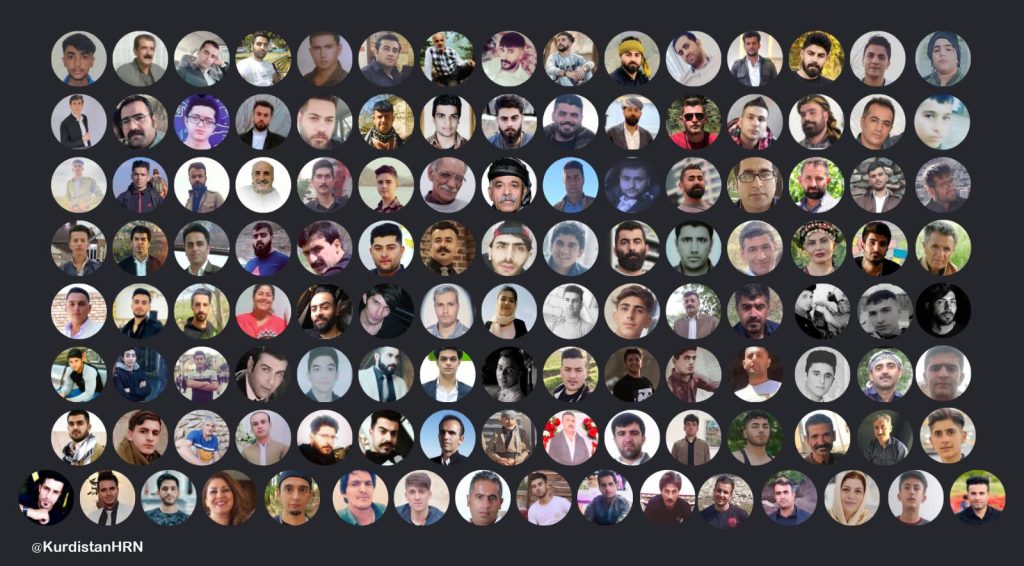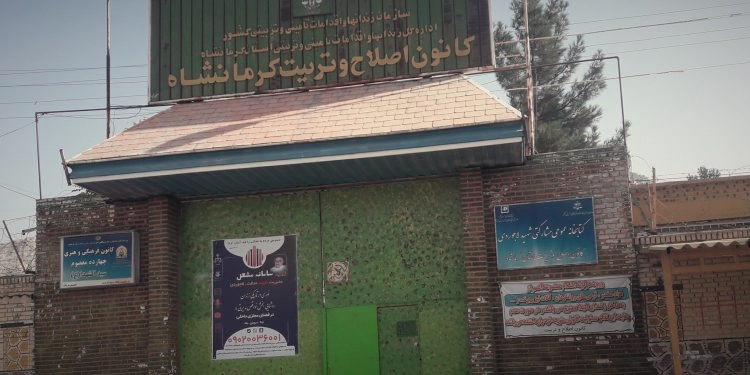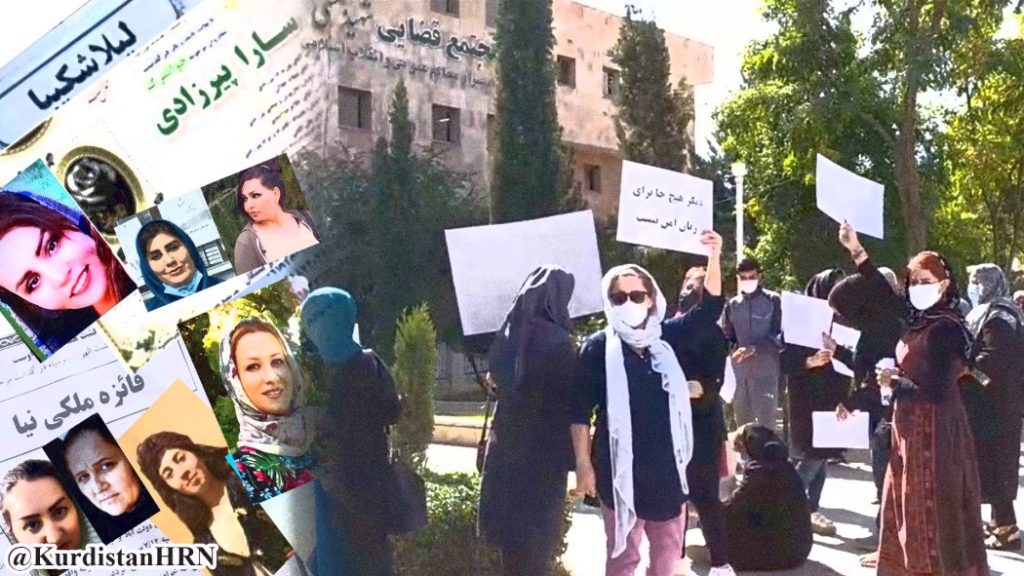On the fourth anniversary of execution of 25 Sunni Kurdish prisoners in Rajaishahr Prison of Karaj, Kurdistan Human Rights Network publishes an interview with the Sunni prisoners at this prison regarding the details of enforcing the executions on 2nd August 2016.
Sunni Kurds prisoner explains mass execution of fellow Sunni prisoners in Rajai Shahr prison on 2 August 2016.
It was in October 2015 when the judge who supervised the prison, separated the prisoners who were sentenced to death and those prisoners who had prison sentences.
The prison guards came and separated us at 8 o’clock. Dozens of the prison guards entered the prison ward and carried items such as guns, batons and spray bottles.
They took us to the yard and covered the windows so we couldn’t take a look outside. The head of the prison and dozens of other employees started to film a documentary. Then he said to us: “The judge has told us that we’ll have to separate all of you.” They had cards displaying names and picture of each prisoner and they told us: “You will be
transferred to Hall 21. You will not come back here again and you can’t take your belongings
with you.”
The prison ward to which they wanted to transfer us had very bad equipment. It didn’t have a clean kitchen and we had no warm water. It was very dirty and cold. The Ministry of Intelligence told us that we were not allowed to see our friends in the separate prison halls.
We were not allowed to see them, not even in the prison clinic. Some of the prisoners were brothers, son in laws or father in laws of each other, but they were still not allowed to see each other.
Two months before the mass execution took place; the prison authorities transferred three of the Sunni prisoners to solitary confinement cells.
They were Jamal Qaderi, Kaveh Vaisi (Khalid Mansor Balaghi) and Kaveh Sharifi. After they spent 20 days in solitary confinement cells, Jamal Qaderi and Kaveh Sharifi were transferred back to the prison ward, except Kaveh Vaisi.
He was kept in solitary confinement. He was accused of communicating with the media and so he was sentenced to another 20 days in solitary confinement. A few weeks later, on 1 August 2016, the prison authorities ordered a sheep so we could slaughter it in the prison kitchen. We hadn’t had meat for almost 2 years. But at that time, the prison authorities allowed us to slaughter a sheep to cook it. Two prisoners of the separate prison sections were ordered to slaughter the sheep, but they returned back without the meat.
In conversation with the two prisoners, the prison guards had said: “We gave the sheep to the prisoners in section 10, because they ordered the sheep before you.” Afterwards, on the same day, we suddenly heard the prisoners of section 10 screaming and shouting.
The prisoners in Hall 21 shouted out from the window towards section 10 to find out what was happening.
The prisoners in section 10 said: “The prison guards came at 7 o’clock and they handcuffed us, shackled our ankles, blindfolded us and put tape on our mouths!” Some of the prisoners managed to take the tapes off, then they shouted and screamed, saying: “They will probably kill all of us.” Then they screamed “Allah u Akbar, Allah u Akbar”. At that moment, the prisoners asked each other “Who is here? Who is here?” in order to find out who had been taken away among fellow prisoners.
The prison guards tried to silence the prisoners, because they screamed so loud that everyone could hear them. So, the prison guards put the radio on the loudspeakers so that no one could hear the prisoners. This incident happened before they were all transferred to solitary confinement. The prisoners in this section were fasting that day and they wanted to cook a meat dish to break their fast.
But the guards took them out of their cells before they could even break their fast. They had transferred the prisoners to the Iranian Revolutionary Guards’ section. The prisoners in Hall 21 asked the guards to transfer the prisoners back to their section or to at least until their hands and feet.
However, the guards lied and said: “We just transfer all of them to another prison.” We could hear the Sunni prisoners screaming and shouting until 12am. After that, we were no longer able to hear their voices.
The next morning, on 2 August 2016, we saw trucks driving into the prison yard with many coffins loaded onto them.
They told us that they had executed 25 of our friends. We couldn’t believe it! We called our families and families of the prisoners, but none of them knew what had happened except for the families of 10 prisoners.
They said they had been “called by the prison authorities to come and visit the prison to meet our loved ones for the last time.”
On that same day, the families of those prisoners were on their way to Tehran and the prison authorities had called them once again asking them to go to Kahrizak (the morgue) to identify the dead bodies.
In reality, the prison authorities had already executed 25 Sunni prisoners at 12pm, at the time when prisoners at Hall 21 stopped hearing their voices.
They were executed despite the fact that some of the executed prisoners had been informed a few months earlier that their cases would be examined.
After the families arrived at Kahrizak, they saw signs of torture on dead bodies of the executed prisoners. Some of them had broken legs, broken arms and bruises on their bodies. The families of the executed Sunni prisoners were only allowed to see the bodies for 3 days and they were not allowed to hold a funeral.
After hearing the news of the mass execution of their 25 friends, the Sunni prisoners at Hall 21 went on a hunger strike.
The following are names of the executed Sunni prisoners:
Sheikh Kaveh Vaisi (Khalid Mansor Balaghi) – Shahram Ahmadi – Farzad Honarjoo – ‘Alim Bermashti – Behrouz Shah Nazari – Kayvan Momeni Fard – Vorya Ghaderi Fard – Muhammad Kayvan Karimi – Talib Maliki – Idris Neimati – Mokhtar Rahimi – Bahman Rahimi – Mohammad Yawar Rahimi – Omid Mahmudi – Pooria Mohammadi – Shahoo Ibrahimi – Ahmad Nasiri – Arash Sharifi – Kaveh Sharifi – Muhammad Gharibi – Omid Payvand – Amjad Salehi – Ali Iraqi – Hamza Iraqi – Hikmat Iraqi
The Sunni prisoners of Hall 21 asked the prison authorities to transfer the remaining Sunni prisoners at section 10 to Hall 21 and to give the belonging of the executed prisoners to them, so they could hand over the belongings to families of the executed prisoners. The total value of the belongings was around 150 millions Tomans.
But they didn’t allow us to take the belongings of the prisoners, so the families of the executed prisoners were not allowed to receive the belongings of the prisoners. One day, after the mass execution, we were taken away from Hall 21 and the guards handcuffed and blindfolded us before they took us to the prison yard.
We stood under the hot sun weather for seven hours and the prison guards beat us. They took our belongings from us. They said to us: “If you don’t end your hunger strike and stop speaking to the media outlets, then we will do this to you every day.” They told us: “If you end your hunger strike and stop speaking to the media, then we’ll give you the belongings of the executed prisoners and we will transfer the remaining Sunni prisoners on death row to your hall [Hall 21].”
When we went to the section 10 (of death row prisoners), we saw that everything had already been stolen.
After some time, they brought some belongings back, such as the TV, kitchen utensils, fridge and clothes. But they didn’t give the books back.
All we wanted was the belongings of the executed prisoners, so we could hand them over to their families, but they were never given to us.
The Ministry of Intelligence banned all of the books that belonged to the executed prisoners. They had about 1.000 books and the value of the books was around 100 Million Tomans.

